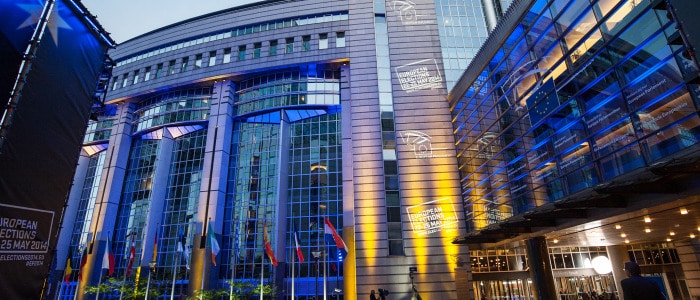Published
EU Reform and the European Parliament Elections
By: Fredrik Erixon
Subjects: EU Single Market European Union

There is a confusing debate going on about how to interpret last week’s European elections. A fairly considerable body of opinion suggests that the rise of the populists, extremists and protest parties has delivered such a blow to the EU that it now needs considerable reform – handing back powers to the member states, allowing for stronger borders around countries or welfare states, reducing the EU budget, et cetera. I agree that the EU needs to be reformed, but I don’t think you can make this case on the back of the election results.
After all, the number that matters after an election is 51 (or, sometimes in the EU, 67): those that can gather 51 percent of voters or deputies in favour a policy wins. And if you pull together all the populists, extremists, protest and anti-EU parties – a very diverse group – you don’t come close to that number. So: if the European elections really should matter – the result is not that now is the time to push reforms attractive to this group of parties.
There is an irony here. A lot of people making claims that the rise of the non-establishment parties should prompt reforms are people who don’t like the idea of having a parliamentary democracy for the EU at all and that favour a European Union built on the undisputed role of the Council as the chief decision maker for the EU. And there is a good case to be made for that view: since its creation in 1979 the European Parliament has not helped to build democratic legitimacy and accountability for the EU or new EU policy.
I don’t think the increasing role of the Parliament has weakened policy efficiency or taken the EU in a different direction. And this is chiefly because the Parliament is not the place where big decisions are taken about the direction of policy: the parliament is a compromise machine that most often makes marginal changes to policies proposed by the Commission and agreed in the Council. There are also some positive consequences of the increasing role of the Parliament: it has helped to produced a more open and transparent debate – admittedly among a very small share of the EU electorate – and marginally helped to push the EU towards a “culture of evaluation”. Proponents and opponents of a policy now need to spend more time defending views and policies – and defending them openly rather than defending them in a closed-door milieu where the might of power trumps the forcefulness of an argument.
But the parliament has to be evaluated on the basis of its contribution to creating a culture of democratic legitimacy and accountability. On that score it has failed. And it would be surprising if it had not failed. After all, the low voter turnout is perfectly rational given the fact that the parliament has a limited role to play in the shaping of EU policy. If elections are not about holding real decision makers accountable, there is bound to be a low turnout and those who actually vote are very likely to cast the ballot paper in a way that has very little to do with the EU. As long as parliament elections are not consequential for the policy direction in the EU I don’t think it is possible to make an honest argument that an election result should take policy in this or that direction.
So, the case for EU reform – and the content of EU reform – should be separate from the discussion about the election results. Is there a case for EU reform? Yes, there is. And a pretty strong case, too. And that reform agenda should concern policy that should remain in the EU and policy that can be handed back to the EU member states. But the reform agenda that I favour is very different from the reform agenda pushed by populists, extremists or protest parties of all shades. My agenda is for greater economic openness, more deregulation and competition, stronger rules to protect against discrimination and market distortions, et cetera. I think there are several policy areas that can be transferred back to member states – and I would include regional policy and agricultural policy in that group. I think there should be a big treaty change soon that should address the core issue for the EU in the future: the relation between the euro and the non-euro countries. More generally, it should create a constitutional structure for variable geometry and allow countries to choose the degree of integration, provided they stick to the core.
I also think that a good case can be made for such an agenda in the next five years. It will boost economic growth and make countries more free to make their own choices. It also stands a better chance to have the support of the member states now than in the past five years. But if the outcome of the European elections should matter for future policy – there will now be bigger opposition to that reform agenda.